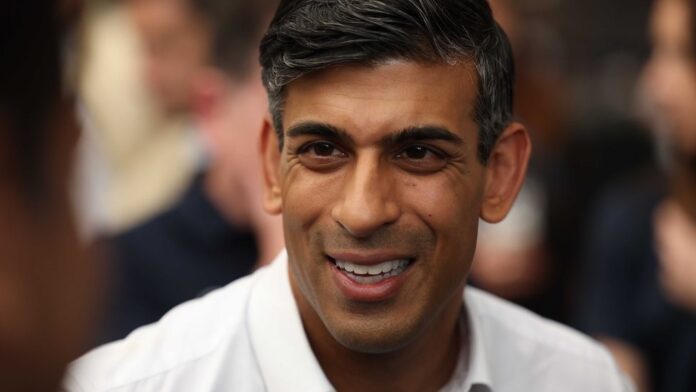Rishi Sunak emphasised his commitment to achieving net zero but stressed the importance of a balanced and practical approach towards the 2050 target. Despite criticism from environmental groups and some fellow MPs, the prime minister remains resolute about addressing climate change.
Speaking to LBC, Sunak expressed his desire to leave a healthier environment for his two daughters, asserting that the UK should improve its state rather than leave it worse off. However, he acknowledged that fossil fuels would still play a role in the nation’s future energy needs.
When questioned about his ability to convince his environmentally conscious daughters, Sunak noted that they were not extreme environmentalists but rather open to rational and reasonable arguments, much like most individuals.
Sunak, who has previously referred to his daughters as passionate about the environment, is under pressure from certain Conservative MPs to reevaluate the government’s green policies. This pressure intensified following the party’s surprise victory in the Uxbridge by-election, which capitalised on public discontent with London’s Ultra Low Emissions Zone (Ulez).
Despite criticism, Sunak reiterated the government’s commitment to achieving net zero by 2050, a goal that entails no further increase in greenhouse gas emissions. This stance, however, has attracted criticism from other climate advocates within the Conservative Party, including Lord Goldsmith, who resigned from the government, citing the prime minister’s lack of concern for climate change.
In response to scrutiny over his own travel choices, the prime minister defended his domestic flights, arguing that responsible climate action shouldn’t translate to an outright ban on air travel.
Moreover, Sunak revealed plans to grant new North Sea oil and gas licences and support a carbon capture initiative in Scotland, drawing criticism from environmental activists. While detractors argue that these decisions undermine the UK’s climate commitments, Sunak stands firm in his belief that utilising domestic energy sources is a practical step to create jobs, reduce reliance on foreign nations, and mitigate environmental costs associated with shipping energy.
In summary, Rishi Sunak’s commitment to achieving net zero by 2050 remains steadfast, even as he navigates criticism and seeks to balance environmental concerns with practicality and economic considerations.

















